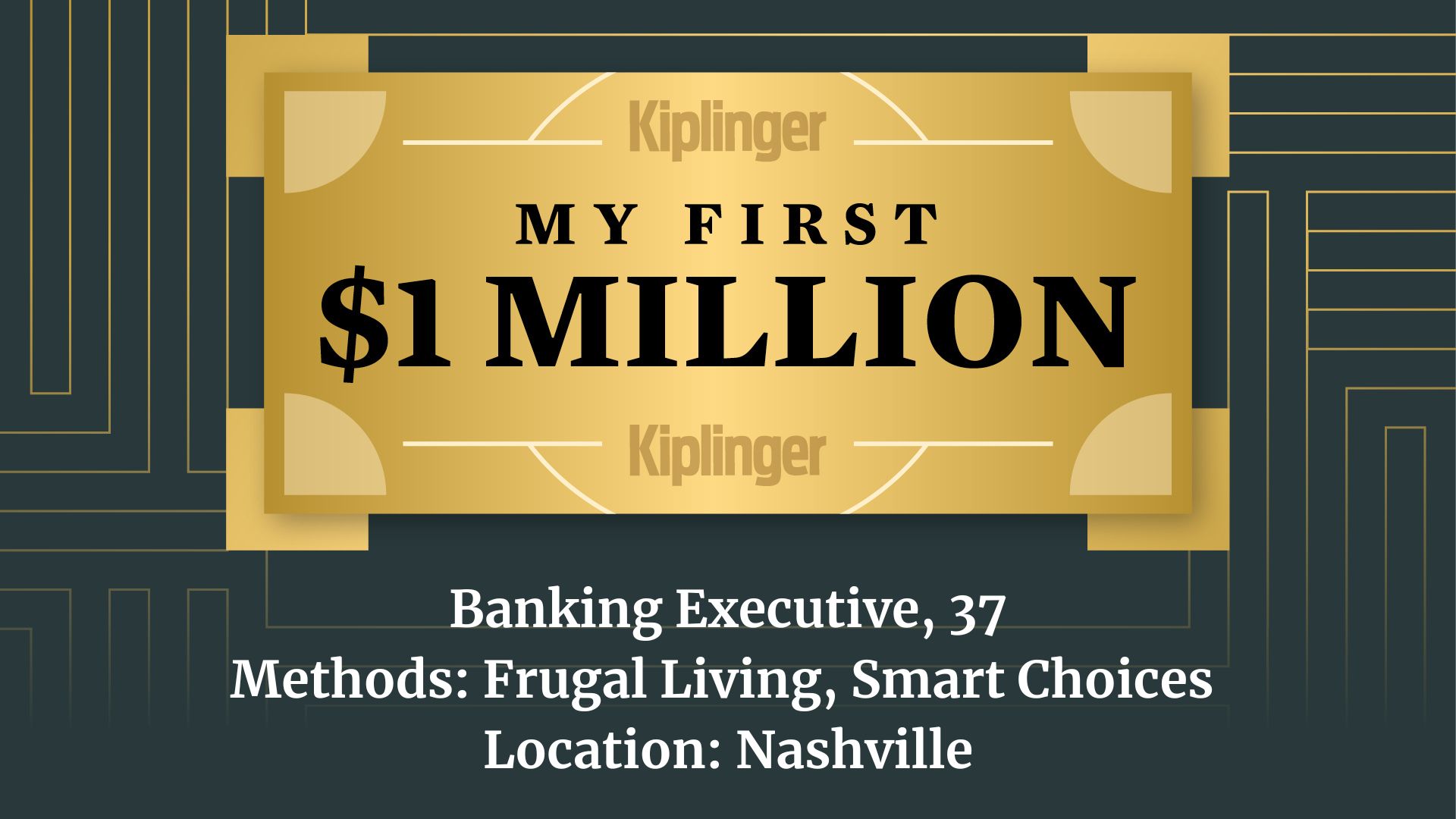Your Optimism About Money Has Grown A Lot Since The Pandemic, Survey Shows
More Americans believe they will be even better off financially a year from now, a new Fed survey shows.


Profit and prosper with the best of Kiplinger's advice on investing, taxes, retirement, personal finance and much more. Delivered daily. Enter your email in the box and click Sign Me Up.
You are now subscribed
Your newsletter sign-up was successful
Want to add more newsletters?
Americans are more hopeful about their financial situations these days than they have been since 2020 and expect to be even better off a year from now, according to a new survey.
“The percentage of respondents expecting to be financially the same or better off 12 months from now is 76.5%, its highest level since September 2021,” according to the January Survey of Consumer Expectations, released this week by the Federal Reserve Bank of New York’s Center for Microeconomic Data.
That's a vast improvement compared to February 2020, when that number was 42.9%. In April 2020, it was a staggering 26.6%.
From just $107.88 $24.99 for Kiplinger Personal Finance
Become a smarter, better informed investor. Subscribe from just $107.88 $24.99, plus get up to 4 Special Issues

Sign up for Kiplinger’s Free Newsletters
Profit and prosper with the best of expert advice on investing, taxes, retirement, personal finance and more - straight to your e-mail.
Profit and prosper with the best of expert advice - straight to your e-mail.
The survey of a rotating panel of approximately 1,300 household heads looked at inflation, labor markets and household finance.
Other findings showed that income growth expectations for households rose to 3.1% last month, remaining above the 2.7% recorded in February 2020 before the pandemic. It also found that more people believe that access to credit is easier now than it was a year ago and their expectation of future access to credit also improved.
The report supports a December 2023 study finding that household wealth increased during the pandemic. However, a large disparity in that wealth still exists between the nation’s richest and poorest people, the December study showed.
Inflation continues to rise
The Fed's January survey also showed that people are uncertain about inflation going forward.
A recent Kiplinger report shows that higher prices for housing and transportation contributed to hotter-than-expected inflation in January. On an annual basis, headline inflation rose 3.1% versus the expected 2.9%, according to the report. Housing contributed a great deal, rising to 0.6% in January from 0.4% in December.
How to protect your financial future
As the economy continues to recover from the impact of the COVID-19 pandemic, there are plenty of steps you can take to control spending and grow your savings. They include creating an emergency fund, negotiating payments with your credit card companies if you have debt and reassessing your budget to identify necessities.
RELATED CONTENT
Profit and prosper with the best of Kiplinger's advice on investing, taxes, retirement, personal finance and much more. Delivered daily. Enter your email in the box and click Sign Me Up.

Jamie Feldman is a journalist, essayist and content creator. After building a byline as a lifestyle editor for HuffPost, her articles and editorials have since appeared in Cosmopolitan, Betches, Nylon, Bustle, Parade, and Well+Good. Her journey out of credit card debt, which she chronicles on TikTok, has amassed a loyal social media following. Her story has been featured in Fortune, Business Insider and on The Today Show, NBC Nightly News, CBS News, and NPR. She is currently producing a podcast on the same topic and living in Brooklyn, New York.
-
 Why Some Michigan Tax Refunds Are Taking Longer Than Usual This Year
Why Some Michigan Tax Refunds Are Taking Longer Than Usual This YearState Taxes If your Michigan tax refund hasn’t arrived, you’re not alone. Here’s what "pending manual review" means and how to verify your identity if needed.
-
 If You'd Put $1,000 Into Caterpillar Stock 20 Years Ago, Here's What You'd Have Today
If You'd Put $1,000 Into Caterpillar Stock 20 Years Ago, Here's What You'd Have TodayCaterpillar stock has been a remarkably resilient market beater for a very long time.
-
 Good Stock Picking Gives This Primecap Odyssey Fund a Lift
Good Stock Picking Gives This Primecap Odyssey Fund a LiftOutsize exposure to an outperforming tech stock and a pair of drugmakers have boosted recent returns for the Primecap Odyssey Growth Fund.
-
 5 Laundry Habits That Are Costing You Money
5 Laundry Habits That Are Costing You MoneyYou might be flushing money down the drain if you have any of these laundry habits.
-
 My First $1 Million: Banking Executive, 37, Nashville
My First $1 Million: Banking Executive, 37, NashvilleEver wonder how someone who's made a million dollars or more did it? Kiplinger's My First $1 Million series uncovers the answers.
-
 10 Decluttering Books That Can Help You Downsize Without Regret
10 Decluttering Books That Can Help You Downsize Without RegretFrom managing a lifetime of belongings to navigating family dynamics, these expert-backed books offer practical guidance for anyone preparing to downsize.
-
 New Ways to Keep Your Online Accounts Safe
New Ways to Keep Your Online Accounts SafeAs cybercrime evolves, the strategies you use to protect yourself need to evolve, too.
-
 Can Your Car Insurance Add Strangers to Your Policy? A Florida Class Action Lawsuit Could Decide
Can Your Car Insurance Add Strangers to Your Policy? A Florida Class Action Lawsuit Could DecideA Florida driver says GEICO added complete strangers to her car insurance policy and jacked up premiums as a result.
-
 Life Loves to Throw Curveballs, So Ditch the Rigid Money Rules and Do This Instead
Life Loves to Throw Curveballs, So Ditch the Rigid Money Rules and Do This InsteadSome rules are too rigid for real life. A values-based philosophy is a more flexible approach that helps you retain confidence — whatever life throws at you.
-
 The Best Short-Term CD for Your Cash in 2026
The Best Short-Term CD for Your Cash in 2026This strategy can help you earn thousands in months.
-
 What Is an Assumable Mortgage and Could It Save You Thousands?
What Is an Assumable Mortgage and Could It Save You Thousands?With mortgage rates still elevated, taking over a seller’s existing home loan could lower monthly payments — if the numbers work.